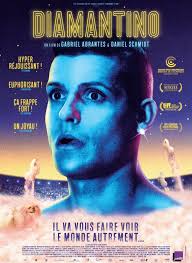Let’s jump straight into it, shall we? Here are six more interesting films that screened at the American Film Institute’s EU Film Showcase. Keep your eye out for these in 2019.
 Transit by Christian Petzold (Germany)
Transit by Christian Petzold (Germany)
If Michelangelo Antonioni replaced Michael Curtiz in the director’s chair for Casablanca, he may have come up with something close to Petzold’s adaptation of Anna Sehgers’ novel. Petzold’s most inspired stroke was to take a novel written in 1944 about events transpiring at the time, and with no explanation, shift the story to the current time period. So we see modern day Marseilles, nervously awaiting the arrival of German troops, which are rapidly occupying the entire country, deporting and imprisoning anyone without proper paperwork. It is truly remarkable how seamlessly the conceit works, pointing out how little has changed from the days of our ugly past. The narrative builds slowly, as we follow Georg (Franz Rogowski, but you are forgiven if you mistake him for Joaquin Phoenix) on his journey from Paris to Marseilles, assuming the identity and the papers of a deceased man. Georg will encounter several desperate refugees along his journey and he will be moved to help them where possible. But there is only so much he can do, so a lot of the plot revolves around failed dreams. Petzold delves into identity and guilt in his intricate plotline, which requires a fair amount of patience to really absorb. Much like the Brazilian film Araby (Alfonso Uchoa and Joao Dumans), Transit sneaks up on you and ends up rewarding that patience by the end.
 Euthanizer (Armomurhaaja) by Teemu Nikki (Finland)
Euthanizer (Armomurhaaja) by Teemu Nikki (Finland)
Last week, we took a look at Dagman, Italy’s submission for the 2019 Foreign Language Oscar. It is a dark comedy revolving around a man who loves animals. I suppose a movie from Finland entitled Euthanizer should have us all prepared to go even deeper into that darkness. But I’m not sure I was ready for Matti Onnismaa’s Veijo, a deeply caring and deeply disturbed loner who repairs cars and euthanizes sick animals in his private shed on the outskirts of town. Teemu Nikki gives Veijo’s story some pointed dark humor as well as some genuine romance (especially if you are into erotic asphyxiation), which keeps the violence and inhumanity of the overarching narrative a little more palatable. But make no mistake. This is a brutal movie, both physically and emotionally. Its primary theme about justice and mercy at times echoes the more ham-fisted efforts of the Saw series, and though this is not as graphic as outright torture porn, it is often more emotionally difficult to bear. Small example (spoiler alert): Dogman sets one body on fire. Euthanizer triples that total. It is Finland’s entry in this year’s Oscar competition, and lest my little capsule here suggests otherwise, it is a very good movie. But do be aware of what you walking into.
 Diamantino by Gabriel Abrantes and Daniel Schmidt (Portugal)
Diamantino by Gabriel Abrantes and Daniel Schmidt (Portugal)
Abrantes and Schmidt won the prestigious International Critics Week award at Cannes this year with this witty satire about a child-like soccer star who is being manipulated by everyone around him. This is a very smart movie, touching on all manner of current hot button issues from gender identity to nationalism to science run amok, all with a great deal of understated humor. But it can teeter uneasily between smart satire and outright farce, and its lead figure, Carloto Cotta’s Diamantino, is generally too stupid to ever invest in. His sweet, singsong narration, which blankets the story, can become oppressive, especially for audiences that aren’t on board with occasional flights of absurdity. There is also a rather obvious overlay of fetishistic misogyny, with the male characters being uniformly sweet and stupid, while the females are smart and sadistic. That is not a new thing – my first essay about television made this same point about the popular American show Glee. But it does leave the impression that Abrantes and Schmidt don’t actually like any of the characters they are showing us, which in turn can keep the movie a bit in check, despite the presence of fantastical cloudlike “fluffy puppies” that accompany Diamantino on his jaunts down the football pitch.
 The Eighth Commissioner (Osmi Povjerenik) by Ivan Salaj (Croatia)
The Eighth Commissioner (Osmi Povjerenik) by Ivan Salaj (Croatia)
Salaj appears to be reworking Bill Forsyth’s 1983 gem Local Hero in this quirky comedy about Sinisa (a wonderfully bemused Frano Markovic), a disgraced politician who is exiled to the remoted island of Trecic to serve out his political penance before returning to the rough and tumble world of Zagreb. Trecic proves to be a wonderland of idiosyncrasy, in which the elderly population speaks a different language and observe odd customs. Sinisa is tasked with organizing elections, something his seven predecessors failed to accomplish. He is aided by a quiet young man, Tonino (Borko Peric), and entertained by Selim (Goran Navojec), a good-hearted-if-vulgar director of pornography who seems to know the sexual peccadillos of every famous person in the world. Salj unfolds his tale slowly, as Sinisa moves from bewildered frustration to understanding of the odd charm Trecic offers. But there is a dark ugliness running through the island that is not all that different from what Sinisa encountered back in Zagreb, and part of his journey is about discovering where to find genuine friendship whether in a major city or on a remote island. Croatia’s submission for the 2019 Oscar race.
 Joy by Sudabeh Mortezai (Austria)
Joy by Sudabeh Mortezai (Austria)
A number of this year’s EU films deal in some way with the current state of immigration, and Mortezai’s movie, which recently won top honors at the BFI’s London Film Festival, is among the very best. It tells the story of Joy, (a riveting Joy Alphonsus), a woman from Nigeria who has journeyed to Europe to make money as a sex worker. Much of the film is devoted to Joy’s mentoring of a new arrival, Precious (Precious Mariam Sanusi), who is struggling with her degrading job in a strange new land. Joy is both maternal (helping pay Precious’ early debt shortfalls) and also brutally realistic (warning Precious not to trust her, as Joy will steal from her if she is ever desperate enough.) Filmed with a largely non-professional cast (many of whom have been sex workers), Mortezai achieves remarkable realism in reflecting the moments of happiness amid the constant mantle of danger which covers these women’s lives.
 Eva by Benoit Jacquot (France)
Eva by Benoit Jacquot (France)
Jacquot, among the most acclaimed of current French filmmakers, is remaking Joseph Losey’s 1962 movie, based on the novel by James Hadley Chase. Gaspard Ulliel and Isabelle Huppert take on roles originally played by Stanley Baker and Jeanne Moreau. Losey’s version is not without problems, but it does a better job of balancing out the relationship between its two leads. In Jacquot’s version, Ulliel plays an utter slimeball – a pretend famous writer who is smitten by an older, high-priced prostitute (Huppert’s title character). Baker and Moreau were both unlikeable characters, and there was a sadistic pleasure in watching them attempt to tear each other to shreds. Huppert’s Eva, on the contrary is worldly and tough, but appears to be a much more decent person than we found in Losey’s version. All of the unpleasantness in the new battle of wills comes from Ulliel’s side of the equation, and though he brings undeniable sex appeal to the part, spending the bulk of the film with him is often unappealing. In the end, it really doesn’t turn out to be a very fair, or interesting, fight.
Check out the upcoming final part in this series on the EU Film Showcase , featuring Florian Henckel von Donnersmarck’s long-awaited German follow-up to The Lives of Others (we are conveniently forgetting his American sojourn, The Tourist) called Never Look Away, as well as the Closing Night screening of Jon S. Baird’s Stan & Ollie, which depending on certain political realities, might be The U.K.’s final entry in this particular festival.

Comments
3 responses to “AFI 2018 European Union Film Showcase: Part Three”
Another great list, Jon. I haven’t seen any of them yet. 🙂
Best wishes, Pete.
[…] […]
Plenty to look forward to in 2019, Jon!